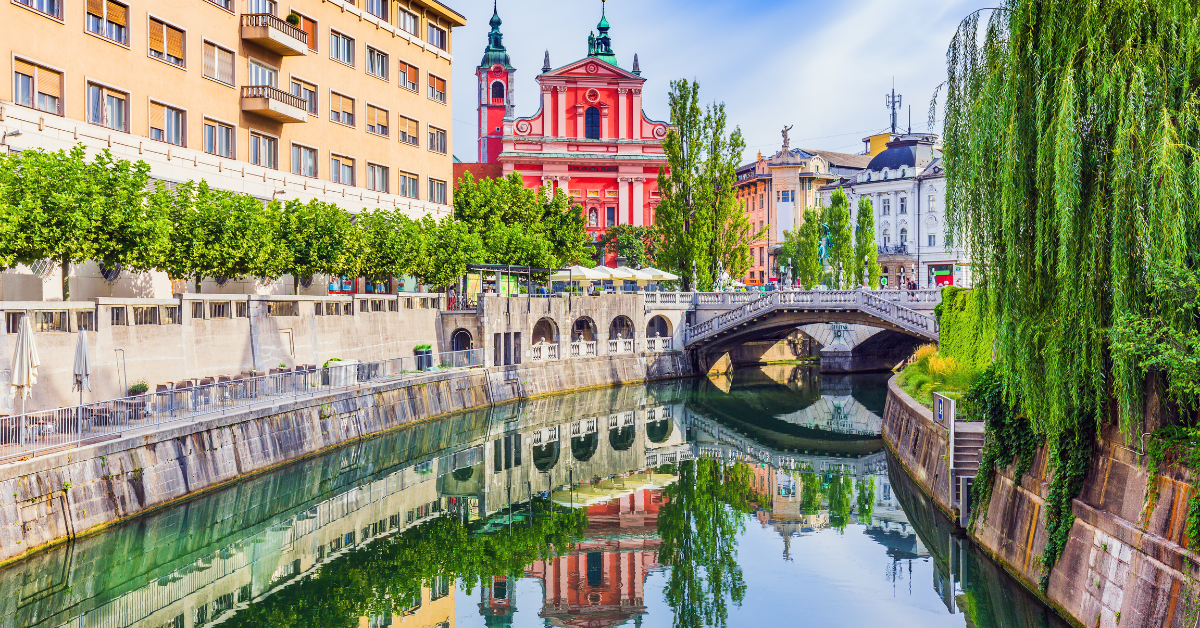Slovenia, a small Central European country, has a rich history and culture that resonates even in Japan. In the past, it was written in kanji as “斯洛文尼亜,” but today it is officially called “Slovenia.” For Japanese travelers, Slovenia is seen as a hidden gem of Europe, combining natural beauty, safety, and sports excellence. This article explores its historical representation and the impressions Japanese people hold of this fascinating nation.
The Kanji Representation of Slovenia “斯洛文尼亜”
When foreign country names were first introduced into Japanese, phonetic approximations were often represented with kanji. “斯洛文尼亜” is one such example, breaking down the pronunciation of Slovenia and replacing it with similar-sounding characters.
However, today the Ministry of Foreign Affairs officially uses the katakana form “スロベニア” to match international standards and ensure readability. As a result, kanji representations are rarely used except in historical or academic contexts.
| Era | Representation | Characteristics |
|---|---|---|
| Meiji to Showa | 斯洛文尼亜 | Part of the trend of representing foreign country names in kanji |
| Heisei onwards | スロベニア | Official designation by the Ministry of Foreign Affairs, aligned with international standards |
Today, the kanji representation remains only in historical records, while “Slovenia” in katakana is the standard form used in modern Japan.
The Image of Slovenia’s Nature and Tourism Among Japanese People
Although small in size, Slovenia boasts remarkably diverse natural landscapes. The Alps, the Adriatic coast, and Lake Bled together create a unique blend of scenery that fascinates visitors.
For Japanese travelers, Slovenia is often described as “a small country packed with all the charms of Europe.” Lake Bled, in particular, is seen as “storybook-like” and even compared to “a scene from a Studio Ghibli film.”
The capital city, Ljubljana, also holds high appeal. Its calm atmosphere, café culture, and cobblestone streets offer visitors the chance to experience “everyday Europe” in a relaxed manner.
| Popular Destination | Characteristics | Impressions of Japanese Travelers |
|---|---|---|
| Lake Bled | Famous for its church on the lake and castle | Storybook beauty |
| Ljubljana | Calm capital where history and art coexist | A chance to feel European daily life |
| Škocjan Caves | UNESCO-listed massive karst cave system | Overwhelming natural power |
The ability to enjoy both natural and urban experiences in a short trip makes Slovenia especially appealing to Japanese tourists.
The Image of Slovenia Through Sports
Despite its small size, Slovenia has made a strong mark in the world of sports. It is particularly renowned for its achievements in winter sports and basketball.
Thanks to its Alpine geography, skiing and ski jumping are especially popular, with Slovenian athletes winning medals at the Winter Olympics.
In basketball, Slovenia has produced global stars such as Luka Dončić, who plays in the NBA. The emergence of world-class athletes from a small country has impressed Japanese sports fans.
Soccer also enjoys popularity, with the Slovenian national team regularly competing in European Championship and World Cup qualifiers.
| Sport | Achievements | Impressions of Japanese Fans |
|---|---|---|
| Skiing and Ski Jumping | Multiple Winter Olympic medals | Strength of a mountain nation |
| Basketball | Produced NBA-level stars | Small country, world-class talent |
| Soccer | Strong presence in European qualifiers | Visibility on the global stage |
Through sports, Slovenia has earned the image of being “a small but strong country” among Japanese people.
Slovenia’s Accessibility and Appeal to Japanese People
For Japanese travelers, Slovenia offers charm in both tourism and sports. Its rich natural environment, political stability, and relatively low cost of living make it an accessible destination.
Not only tourists but also sports enthusiasts and fans who follow international competitions are becoming more familiar with Slovenia.
| Evaluation Point | Appeal for Japanese People |
|---|---|
| Natural Diversity | Mountains, lakes, and the sea all within short distance |
| Urban Atmosphere | Calm, safe, and easy to stay in |
| Economic Factors | Relatively affordable travel expenses |
The combination of “nature,” “safety,” and “sports” makes Slovenia increasingly approachable for Japanese people.
Conclusion
Slovenia, once written in kanji as “斯洛文尼亜,” is now officially recognized as “スロベニア” in Japan. While still not widely familiar among the general public, it is gradually becoming appreciated through:
- Its natural beauty
- The charm of its calm cities
- Its international success in sports
Slovenia offers much to discover for travelers, culture lovers, and sports fans alike. As tourism and cultural exchange deepen, Slovenia is expected to grow as one of Europe’s “hidden gems” for Japanese people.






